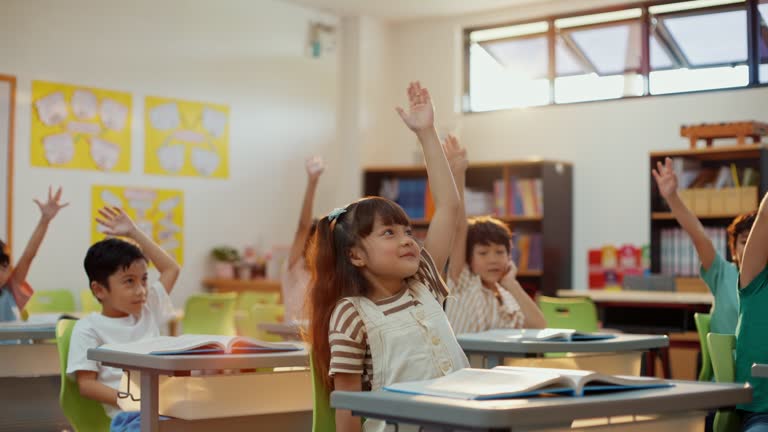Education is more than just classrooms and textbooks—it’s a lifelong journey that shapes who we are and how we engage with the world. From the first time a child learns to read to an adult mastering a new skill, education lays the foundation for personal growth, career success, and societal progress. But why is it so important, and what’s its true purpose? Let’s dive into the heart of education, exploring its value through real stories, practical insights, and a touch of humor to keep it relatable.
The Importance of Education
Education is the key that unlocks countless doors in life, from personal fulfillment to global impact. It equips us with knowledge, sharpens our critical thinking, and builds the confidence to chase our dreams. Without it, we’d be like sailors without a compass—lost in a sea of possibilities.
Education Builds Knowledge and Skills
Think back to when you learned something that changed your perspective—like how to solve a math problem or the history behind a cultural tradition. Education provides the tools to understand the world, whether it’s mastering coding or learning how to budget. These skills aren’t just academic; they’re life skills that empower us to navigate challenges with confidence.
Education Fuels Personal Growth
I remember my high school English teacher, Mrs. Carter, who encouraged me to write poetry despite my terrible rhymes. That small act of belief sparked a love for self-expression that still shapes me today. Education fosters self-discovery, helping us uncover our passions and build resilience to face life’s ups and downs.
Education Drives Career Success
A solid education often translates to better job opportunities. According to the U.S. Bureau of Labor Statistics, individuals with a bachelor’s degree earn about 65% more than those with only a high school diploma. Education opens doors to careers that not only pay the bills but also align with our goals and values.
Education Strengthens Society
Educated individuals contribute to stronger communities. They’re more likely to vote, volunteer, and advocate for change. For example, studies show that higher education levels correlate with lower crime rates and better public health outcomes. Education isn’t just personal—it’s a ripple effect that uplifts everyone.
The Purpose of Education
The purpose of education goes beyond earning a degree or landing a job. It’s about preparing individuals to live meaningfully, think critically, and contribute to a better world. Let’s break down the core purposes that make education a cornerstone of human progress.
Preparing for Life and Work
Education equips us with practical skills for everyday life and professional success. From learning how to balance a checkbook to mastering software for a tech job, it’s about readiness. Schools and universities aim to produce graduates who can thrive in a fast-changing world.
Fostering Critical Thinking
Ever been stumped by a tricky problem, only to realize the solution required a fresh perspective? Education teaches us to question, analyze, and solve problems creatively. It’s like mental gymnastics, training our brains to tackle complex challenges with clarity and confidence.
Promoting Social Mobility
Education is a ladder out of poverty for many. Take Malala Yousafzai, who defied unimaginable odds to champion girls’ education worldwide. Her story shows how learning can break barriers, offering opportunities to those who might otherwise be left behind.
Encouraging Civic Responsibility
An educated society is an engaged one. Education instills values like empathy and responsibility, encouraging us to participate in democracy and advocate for justice. It’s why history and civics classes matter—they remind us of our role in shaping a fairer world.
Comparing Traditional vs. Modern Education
Education has evolved dramatically, from chalkboards to online courses. Let’s compare traditional and modern education to see how they stack up in meeting today’s needs.
| Aspect | Traditional Education | Modern Education |
|---|---|---|
| Delivery Method | In-person, classroom-based | Online, hybrid, or in-person |
| Accessibility | Limited by location and resources | Global access through digital platforms |
| Learning Style | Teacher-centered, lecture-based | Student-centered, interactive, and flexible |
| Cost | Often expensive (tuition, books, etc.) | Varies (free online courses to premium programs) |
| Skill Focus | Core academics (math, science, literature) | Includes digital literacy, coding, soft skills |
Traditional education offers structure and personal interaction, while modern education prioritizes flexibility and accessibility. Both have their strengths, but the best approach often blends the two for a well-rounded experience.
Pros and Cons of Traditional Education
Pros:
- Structured environment fosters discipline.
- Face-to-face interaction builds social skills.
- Access to physical resources like libraries and labs.
Cons:
- Limited flexibility for working students.
- Can be costly and less accessible in rural areas.
- May not always teach modern, in-demand skills.
Traditional education suits those who thrive in structured settings but may fall short for those needing flexibility or cutting-edge skills.
Pros and Cons of Modern Education
Pros:
- Flexible schedules for busy learners.
- Wide range of courses, from coding to yoga.
- Often more affordable or even free (e.g., Coursera, Khan Academy).
Cons:
- Requires self-discipline to stay on track.
- Limited in-person interaction can feel isolating.
- Quality varies across online platforms.
Modern education is a game-changer for accessibility but demands motivation and a reliable internet connection.
How Education Shapes Personal and Professional Life
Education isn’t just about grades—it’s a catalyst for transformation. Let’s explore how it impacts our personal and professional journeys with real-world examples.
Personal Growth Through Education
When I took a community college course on public speaking, I was terrified of presenting. But those classes taught me not just to speak confidently but to believe in my voice. Education builds self-esteem, helping us conquer fears and embrace our potential.
Professional Advantages of Education
Consider someone like Sarah, a single mom who earned an online degree in nursing. That education didn’t just land her a stable job—it gave her family a brighter future. Degrees, certifications, and even short courses can open doors to promotions and new career paths.
Lifelong Learning and Adaptability
The world changes fast—think of how AI has reshaped jobs in just a few years. Lifelong learning, whether through formal education or self-study, keeps us adaptable. Platforms like Udemy or LinkedIn Learning make it easy to stay current.
Where to Get Quality Education
Finding the right educational resources depends on your goals, budget, and learning style. Here’s a quick guide to navigating your options.
Traditional Schools and Universities
Colleges and universities offer structured programs with recognized credentials. Look for accredited institutions like Harvard or community colleges for affordable options. They’re ideal for in-depth, hands-on learning.
Online Learning Platforms
Platforms like Coursera, edX, and Khan Academy provide flexible, high-quality courses. Many offer free or low-cost options, perfect for skill-building on a budget.
Vocational and Trade Schools
For hands-on careers like plumbing or electrician work, vocational schools are a great fit. Check out local programs or national networks like Universal Technical Institute. They focus on practical, job-ready skills.
Best Tools for Education
To make the most of your learning journey, leverage these top tools designed for students and lifelong learners.
- Notion: A versatile app for note-taking, organizing study schedules, and tracking projects.
- Quizlet: Perfect for creating flashcards to memorize key concepts or vocabulary.
- Grammarly: Ensures your writing is polished and error-free, great for essays and reports.
- Google Scholar: A free resource for finding credible academic articles and research papers.
These tools enhance productivity and make learning more efficient, whether you’re in a classroom or studying online.
People Also Ask (PAA)
Here are answers to common questions about education, pulled straight from Google’s PAA section.
Why is education important for success?
Education equips you with skills, knowledge, and critical thinking needed to navigate life’s challenges. It opens career opportunities and builds confidence. For example, a degree can boost earning potential by up to 65%, according to the U.S. Bureau of Labor Statistics.
What is the main purpose of education?
The main purpose is to prepare individuals for life, work, and civic engagement. It fosters critical thinking, promotes social mobility, and equips us to contribute to society. Education is about creating well-rounded, capable people.
How does education benefit society?
Education reduces poverty, lowers crime rates, and promotes healthier communities. Educated individuals are more likely to vote and volunteer, strengthening democracy. It’s a foundation for progress at every level.
Where can I access free education?
Free education is available through platforms like Khan Academy, Coursera, and YouTube. Many libraries also offer free courses or access to online resources.
FAQ Section
What are the benefits of education?
Education boosts employability, enhances critical thinking, and promotes personal growth. It also improves social mobility and strengthens communities by fostering informed, engaged citizens.
How does education help in career growth?
Education provides specialized skills and credentials that employers value. For instance, certifications in fields like IT or healthcare can lead to promotions and higher salaries.
Can I learn effectively online?
Yes, online learning is effective with discipline and quality resources. Platforms like edX offer courses from top universities, often with interactive elements to enhance engagement.
What’s the difference between formal and informal education?
Formal education involves structured programs like schools or universities, while informal education includes self-study, workshops, or on-the-job training. Both are valuable but serve different purposes.
How can I afford higher education?
Explore scholarships, grants, or affordable online programs. Websites like Fastweb help find scholarships, while community colleges offer cost-effective degrees.
Conclusion: Education as a Lifeline
Education is more than a means to an end—it’s a lifeline that connects us to our potential and the world around us. Whether it’s learning to read as a child or mastering a new skill as an adult, every step forward counts. So, embrace the journey, whether through a university degree, an online course, or a library book. Your education is your story—make it a good one.




